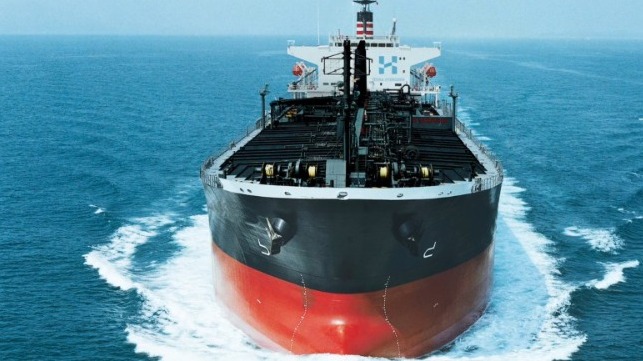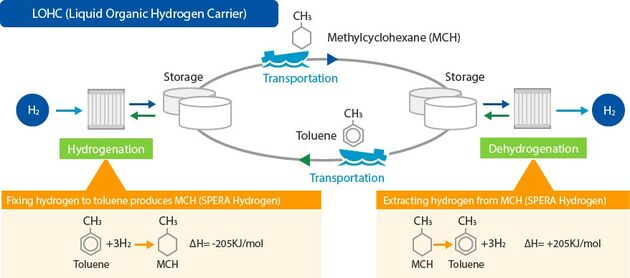Port of Rotterdam Studies Hydrogen Imports Using Chemical Carrier

The Port of Rotterdam is working with a tank farm operator and two Japanese conglomerates to study the possibility of importing hydrogen in the form of methylcyclohexane, an industrial chemical that releases H2 when converted to toluene. This reaction is well-known and used on a wide scale to manufacture gasoline, and Chiyoda has successfully tested it for the alternative purpose of binding and transporting hydrogen.
In 2020, Chiyoda, Mitsubishi, Mitsui and NYK completed a demonstration project for long distance transportation and storage of hydrogen using Chiyoda's "SPERA Hydrogen" technology. They built a plant to turn toluene into methylcyclohexane (MCH) in Brunei, shipped it to Japan, converted the MCH to toluene and hydrogen, kept the hydrogen and shipped the toluene back to Brunei for reuse. According to Chiyoda, this was the world’s very first global hydrogen supply chain project proving technical readiness for commercial use.

The consortium expects that the process will play an important role in making commercial scale hydrogen supply chains possible. MCH is a liquid hydrocarbon, and it is far easier to transport than ammonia or liquid hydrogen, which must be chilled and kept at low temperatures for transport.
To capitalize on the potential of the SPERA process, Port of Rotterdam Authority, Koole Terminals, Chiyoda and Mitsubishi are conducting a joint study on the large scale import of hydrogen into the Netherlands. Each will play a separate role: the port authority will help connect major hydrogen end users in northwest Europe with hydrogen suppliers overseas; Chiyoda will supply the technology; Koole will investigate storage and distribution; and Mitsubishi will lead the commercial development of the project.

that matters most
Get the latest maritime news delivered to your inbox daily.
The partners hope to proceed on a rapid timetable, importing 100-200 kilotonnes per annum of hydrogen as early as 2025.
MCH comes with one additional consideration: like any hydrocarbon release, an MCH spill at scale could have environmental repercussions. Under the Globally Harmonized System (GHS) of hazard classifications, methylcyclohexane is categorized as "toxic to aquatic life with long lasting effects [hazardous to the aquatic environment, long-term hazard]." It is volatile, floats on water and evaporates quickly, limiting its spread in the water column, but an EPA evaluation found that it is acutely toxic to some organisms, including several shrimp species, striped bass and trout.
